|
Tiq, he realized, had once been yet another capital, though the local historians did not put it just that way; they had a structure of dynasties that filled the past. When Tiq was its capital, the empire must have been smaller.
He had by now learned not only to speak large parts of this and other dialects, but to write, and he began to add to the local history. There was much in and around Tiq to become infinitely interested in. There were anecdotes, religions, paintings made on the quoins and beams of buildings or on table tops or bookshelves; there were peacock farms. Different kinds of people wore clothes with different distributions of bright colors. Some of the people were fat. With his friends' encouragement, he continued to wear his land-colored roadbuilder rags; they were appreciated as the mark of yet another kind of person. He tried to go back to bare feet, but his feet had become soft.
There was love within the genders too, and those who admired a limb, caressed it. People had not heard of the road. They had him give a lecture about it, and placed an inscription on a corner where it might have passed. One of them asked him: “Could it be said that the Road is male and the Frantagont female?” The question had to be explained to him — the road penetrating the country ahead — and he laughed as he thought of his mighty sister, and had to answer that the idea had not occurred to him. As he said this he noticed why no such idea had occurred to him: “idea” was one of the words of his new vocabulary. New to him were analogy, poetry. Tiq did not consist of streets. Children played different games in each court or rooftop. He looked at these children and wondered, Can there be young in an old race? There had been no old at the roadhead.
The dialect of Tiq was luxuriant with devices that had not been in the correct language of the empire, and there were other languages round about, of which he learned and recorded much. One language had vowels that mutated diagonally across the mouth; another could express a kind of humour that no other language could.
Etke did not yet have a child; when she did, the child would be infinite. Because of her, Arinka could no longer think of moving on. He could no longer think of moving on, if only because he now had possessions, papers. Far too much to carry in his pack. The kond, the roadbuilders, might sometime find the road's end, but he would never find its beginning.
He found himself worrying about the boundary around knowledge. Was there anything outside, was there anything that was not worth knowing? He wished he could compact all knowledge into a cubic crystal that would have the property of rim: absolute permanence. Then it could be sealed safely in some abyss under Tiq.
People were content to spend their lives in Tiq, though they went on picnics into the country, and longer excursions to other small towns, and canoed on rivers. There was a wedge of direction where some mountains loomed that were said to be impassable.
Tiq did not so much stand on the land
as sprout from its wrinkles; half of its rooms were caves in the
rock. It was ringed by an ancient wall. The wall was no longer complete,
but it was complex, ornamental, made mostly of a kind of limestone
that radiated the evening sun. Being now useless, this wall was
a sculpture. Arinka made drawings of it — he had learned to
draw, too, and he made drawings of Etke, sometimes inside the wall
of her clothes, more often not. His drawings became part of the
many documents of Tiq that needed to be preserved. Tiq was a treasure-house.
It was fairly rich, too, though not powerful — there were no
armies around here since the provinces had ceased fighting
with each other.
|
